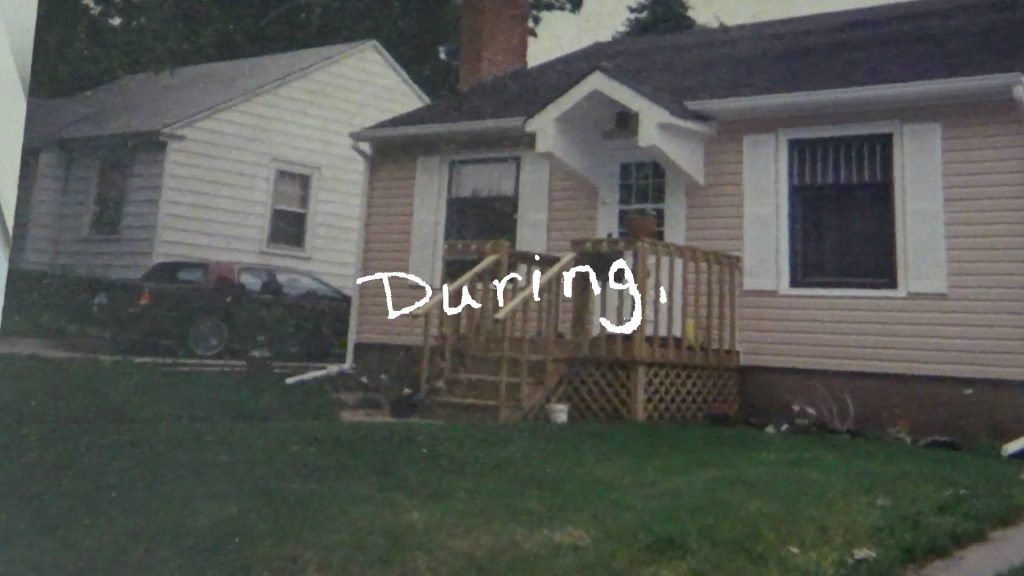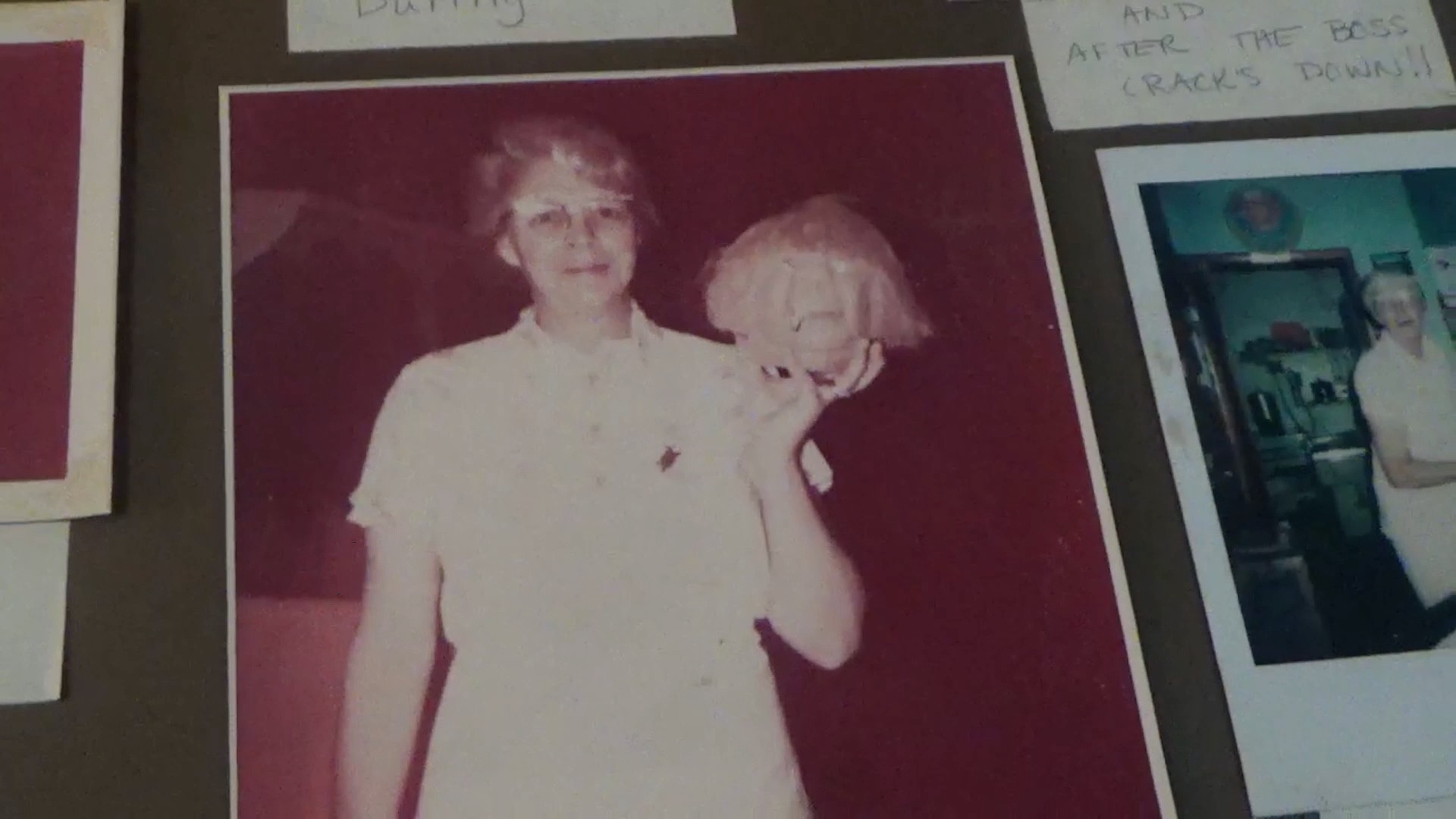Artist Mark Prendergast pieces together diaristic glimpses of the life of Gerald Brunson, the enigmatic DJ and producer best known as a member of Model 500 and the founder of Dance Sacred Records.
Among the many legends who pioneered the sound of Midwest techno, Gerald Brunson is a singular voice. Between playing as part of Model 500’s live iteration and operating Dance Sacred Records, the producer and DJ is truly a veteran of the scene, winding his way from working the floor at the legendary Detroit record shop Submerge Records, his early experiments in acid techno as Acid Jakal, linking up with Underground Resistance founder Mike Banks and Juan Atkins, to his current run as Brunson. His new EP, Hug Your Friends, is his first release for Tresor, a long-in-the-making joining of forces that arrives as part of the label’s 30th anniversary celebrations. To mark the occasion, Brunson worked in collaboration with video artist Mark Prendergast to create a short film in support of the project. Never one to settle for the obvious, Brunson began to send Prendergast a collection of diaristic audio and video clips, which together paint a rich and complex picture of a truly enigmatic artist. Touching on his childhood, generational trauma, the American Midwest, his process as a producer and DJ and, above all, the love he has for his late grandmother, Vivian Rowe, Brunson paints a colourful impression of the intimate and at times melancholy space from which his music emerges, parsed through and lovingly stitched together by Prendergast in his inimitable style. “In the same vein as the previous video we made in this series with Terrence Dixon, Gerald sent us a bunch of off the cuff imagery and audio that he felt represented himself in some way,” explains Prendergast. “It was all great material, but one video in particular stood out to us, in which he takes us on a tour of a photo collage which hangs in his kitchen, telling us about his family background and in particular about his grandma.”



“The video takes the form of a journey of reflection and memory, intercut with a road trip to Yuma, Colorado to the patch of land that Rowe was born on, where we see Gerald spread his grandmother’s ashes,” continues Prendergast. “What we actually is see the surreal moment of him accidentally dropping the bag of his grandmothers ashes to find two CDs he put in there at the time of her passing: one an album by her favourite singer and one a mixtape Gerald made of her favourite music. On a formal level, the juxtaposition between the love for an elderly relative and hard techno was one we were super interested in exploring.” From the very first moments in which grandma Rowe is introduced, pictured striding across the plains of Colorado on horse back, these two pillars of Brunson’s life are fused together, his description of his grandmother as “a very hardcore woman, period” punctuated by a 4/4 beat, metered out in the lo-fi rhythm of Prendergast’s jagged edits. Throughout the film Brunson’s voice and the sounds in the background of his recordings are threaded into the machinic pulse of his own primal hardware techno, resulting in an expressive score that captures the intense nostalgia and intimacy of the producer’s expansive trips through his own memories. Prendergast annotates Brunson’s voiceover with pixellated phrases, scribbled over the top of grainy footage, underlining the scrapbook, patchwork quality of the producer’s video and audio, personal recollections animated with his own sounds. “Where they grew up, like, literally no one could hear you scream,” Brunson says of his grandparents home. “They say that about space, but not a lot going on back there.”



“We noticed that the videos Gerald was sending us, particularly about Grandma Rowe, touched on themes of generational trauma,” continues Prendergast. “He has had to deal with the effects of alcoholism and drug abuse from two distinct angles throughout his life – in his family and upbringing, due to what could arguably be seen as the American Dream gone bad, and then again in his social circles which revolve around club music culture. Gerald is doing the work to unpack the resulting trauma and seems to be committed to making sure that this stops with his generational line.” It’s a recurring theme in Brunson’s approach to techno, which, while hugely inspired by psychedelic experiences, doesn’t draw its potency from club hedonism, but rather a rigorous dedication to the fringes of the Black musical tradition. “I don’t understand why everyone where I’m from drinks so much and does so much ketamine and coke,” Brunson tells Juno. “I’m not fucked up on coke and fentanyl or ketamine all the time. You can count on me at three in the morning, I’m committed to the set up, execution of design and the dismantle.” Recounting a difficult past of family struggles and losing friends to overdoses, Brunson connects the strife of the Great Depression to memories of addiction in the rave scene in the Midwest in the mid-to-late ’90s during a spoken passage that intermingles the two narratives, finding a shared pain in the experiences of his ancestors and his own experiences in music, before he is interrupted by the bleep of a sequencer, the ensuing acid squelches illustrating perfectly the artist’s ability to channel this raw emotion into his productions.



“In some way I recognised my own story in the one that Gerald was telling us,” says Prendergast, “processing a dysfunctional upbringing and coming to terms with things as an adult. I don’t think he knew how clearly he was communicating about these themes, and maybe it takes a certain sensitivity and sense of shared experience to pick up on what he was really meaning. He was really stoked when he realised it was taking this shape as its obviously a huge part of who he is, and its stuff he’s been thinking about a lot recently. We are really glad we focussed in on that one video and managed to open up a space for some catharsis.” What Prendergast’s vision of Brunson’s life illustrates is an artist committed to coming to terms with his past, both in terms of where he comes from and in terms of his formative experiences with music. To this day he produces techno in his childhood bedroom, “I’ve been generating energy in that place for a long time and it definitely transfers through to my music,” he asserts. From the climactic moment of the film, in which Brunson finds some lost CDs in his grandmother’s ashes, it’s clear that his music proceeds as a direct result of the gifts given to him by Grandma Rowe. “I remember one time I was expressing an idea about something and someone was trying to cut me off, and she cut them off and said: ‘let the boy speak!’. Ever since then I had a proper speaking place at any table I was at, she would stand up for me. When I started going to raves, she stood behind it.” We close with a final word from Brunson, “we’re only here for a certain amount of time man,” and shaky close ups of the words ‘this,’ ‘is,’ ‘your,’ ‘life.’ “The video is a testament to the impact that Grandma Rowe had on Brunson, telling the story of the many ways that she supported him,” concludes Prendergast. “She gave him a voice and she gave him her house. She validated and pushed him to follow his love of music, which ultimately became the vehicle for him to transcend his circumstances.”



Hug Your Friends is out now, on Tresor Records. For more information about Mark Prendergast and his work you can find him on Instagram.
Watch next: Heith wanders through a dark dream world in A Venus flytrap in the circus lodge




